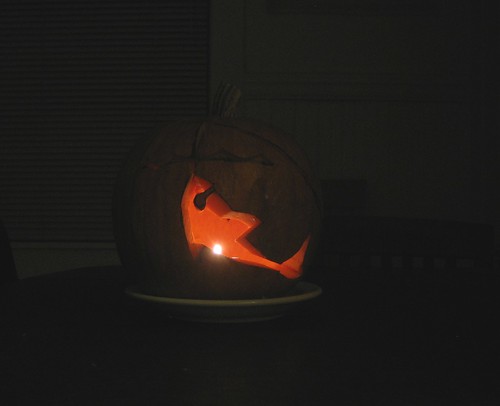
Monday, October 31, 2011
Sunday, October 30, 2011
Angelic Voice - Philippe Jaroussky at Hertz Hall, UC Berkeley
| Philippe Jaroussky, 2011 Misteria Paschalia Festival, Kraków Philharmonic |
The program included: Handel: Chaconne from Terpsichore (Il pastor fido) • Arias from Oreste, Imeneo, Il Parnasso in Festa and Ariodante • Handel/arr. Sorrell: Prelude in A major for Solo Harpsichord • Vivaldi: Violin Concerto in E-flat major, Op. 8, No. 5, "Tempesta di Mare" • Arias from Catone in Utica, Giustino and Tito Manlio • Vivaldi/arr. Sorrell: Concerto Grosso "La Follia" ("Madness") • Allegro from Concerto Grosso in D major.
Cal Performances is often praised for presenting local debut performances by top talents from all over the world, especially the recital series of classical music, such as mezzo-soprano Cecilia Bartoli, and tenor Jonas Kaufmann. Last year, I attend the more heroic voiced Kaufmann recital at the larger Zellerbach Hall, the more ethereal voiced Jaroussky graced us at the more intimate Hertz Hall.
Jaroussky had been singing in the Baroque repertoire for a long time and has long been praised highly for his angelic voice and his keen musicality. His performance in Hertz Hall confirmed such reputation and I state again that I had never heard a sweeter voice before.
More crucially, unlike the reputation associated with the voice type of countertenor, Jaroussky had good amount of coloration at his disposal therefore his sing was never monotonous or glassy. His agile voice was very impressive in the Handel and Vivaldi's pyrotechnics but he was also able to invest the music with true emotions, firm and focused tone, and wonderful flexibilities. He was also able to connect with audience in an immediate way and any doubts due to the unfamiliarity with Baroque era dissipated as soon as he let his voice ripple through the hall.
All of his offerings - seven announced arias and three encores (The three encores were an aria by Porpora, "Venti, turbini" from Händel's Rinaldo, and "Ombra mai fu" from Händel's Serse) were of highest quality but I enjoyed the most was the slow and soulful music such as the Handel recitative and aria Ho perso il caro ben for Orfeo from Il Parnasso in Festa, mourning the death of his beloved Euridice and the romance encore. He simply convinced me that Orfeo should sound just like him, nuance after nuance.
He was full of grace, not only in his bearings but in his willingness to share the stage. The Apollo's Fire treated the delighted audience several music in various emotions and was greeted just as enthusiastically.
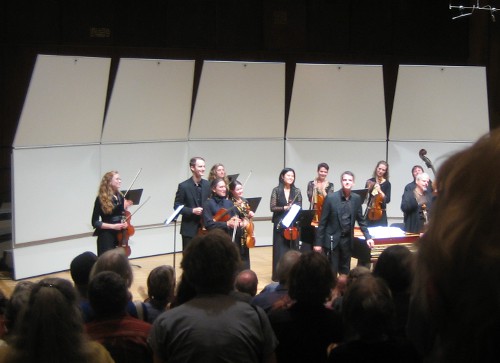
Pity that San Francisco Opera never saw fit to engage starts like Bartoli, Kaufmann and Jaroussky. Would it be nice to have a Vivaldi opera staged for the talents like Jaroussky and Bartol?
Philippe Jaroussky - Opium (Mélodies Francaises) - EMI Classics
Philippe Jaroussky - Carestini: Story of a Castrato - EMI Classics
Labels:
Baroque,
Classical Music,
Concert,
Countertenor,
Handel,
Philippe Jaroussky,
Vivaldi
Friday, October 28, 2011
Natural Bridge and Crater Lake, Oregon - Oregon Trip, Part 7
During our stay in Ashland, we took a day trip to the renown Crater Lake. Before we arrived at our destination, we stopped by the "Natural Bridge" at the upper Rogue River for a short while.
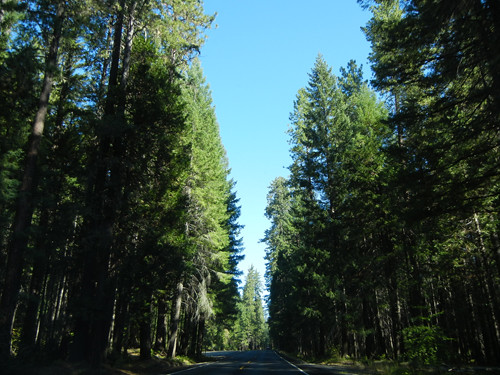
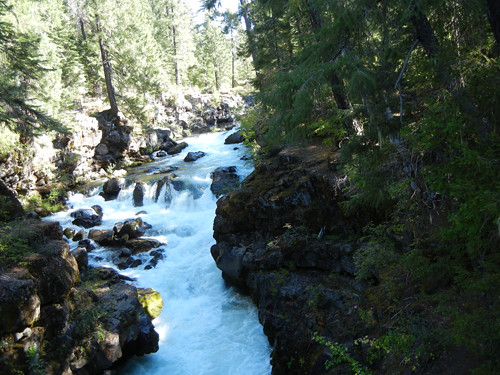
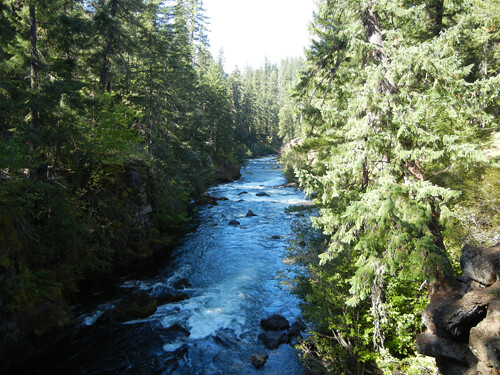
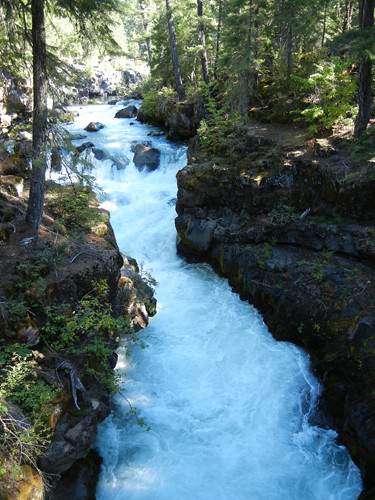
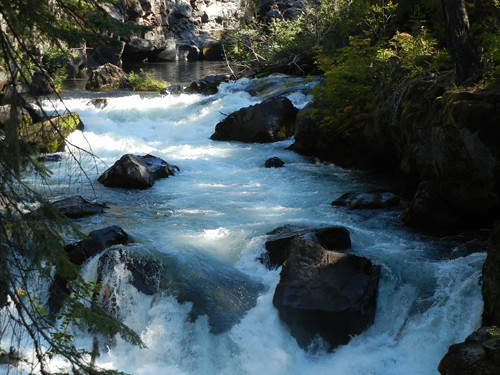
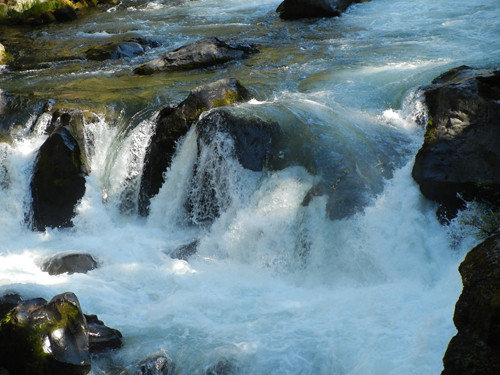
The Rogue River was a large rapids and a lovely one. The wonderful thing to see here is the water had created courses underneath large rocks therefore the "natural bridges". We saw clearly how the water came out of and flew into "caves".
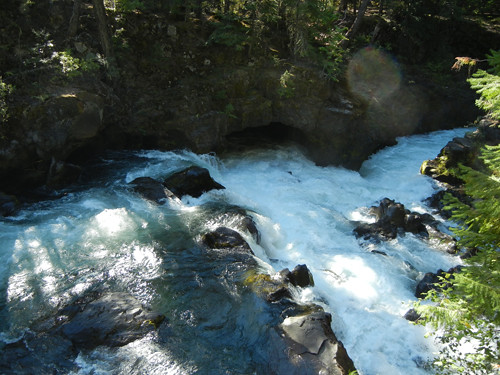
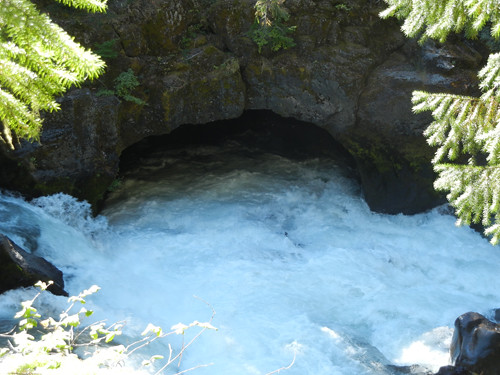
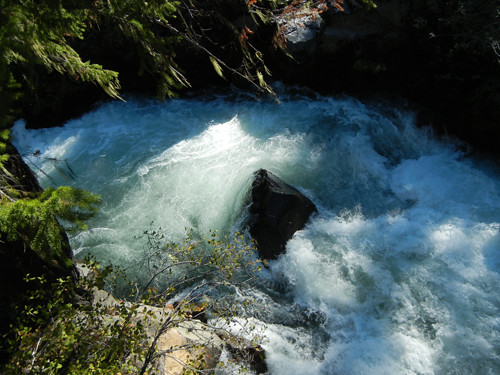
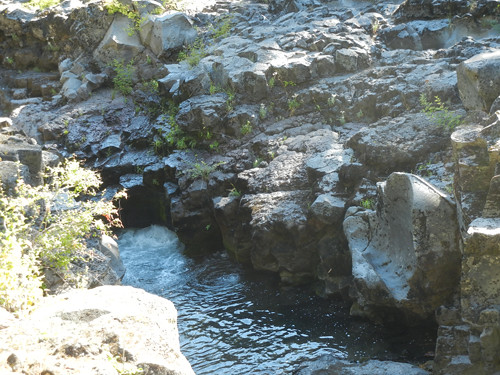
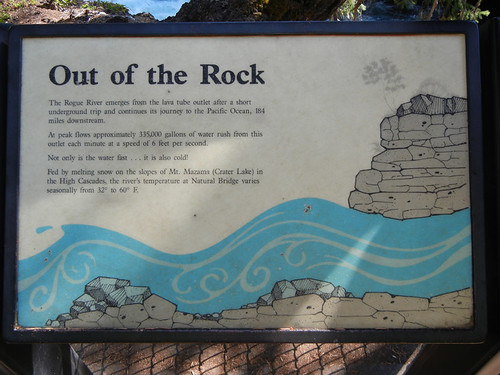
After we'd left the Natural Bridge, we continued to climb up to more than 8,000 feet elevation and arrived at the Crater Lake.
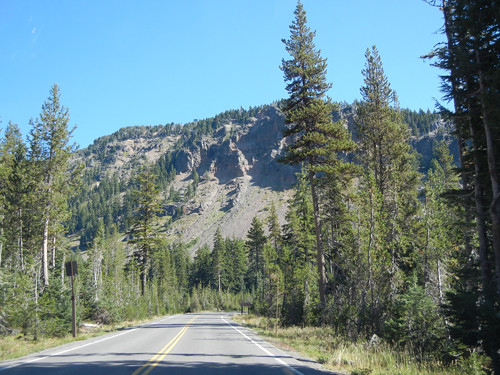
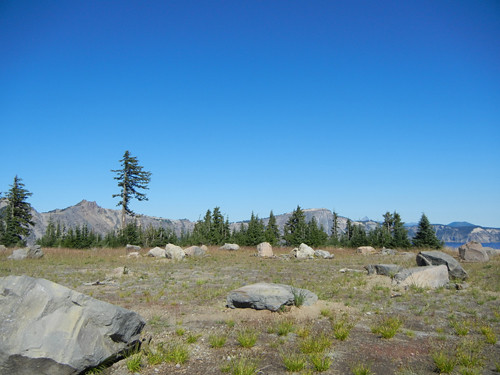
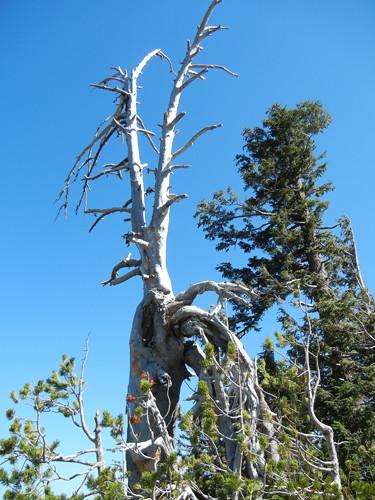
Wikipedia described the lake as:
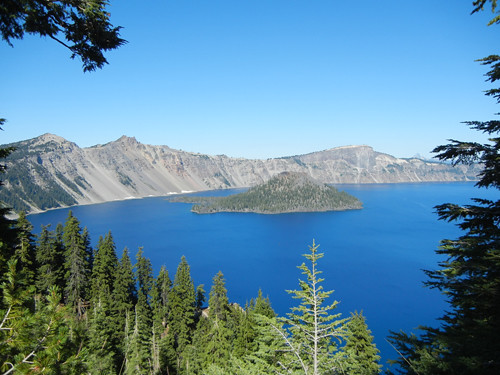
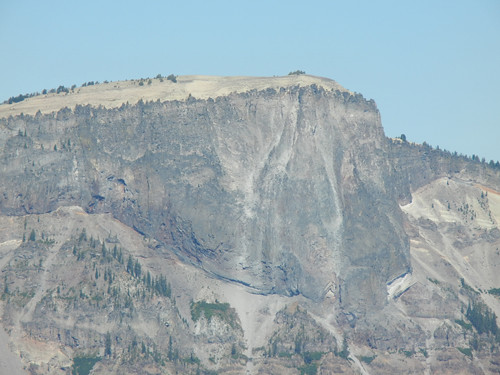
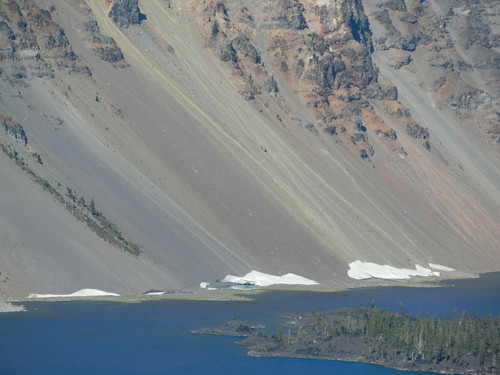
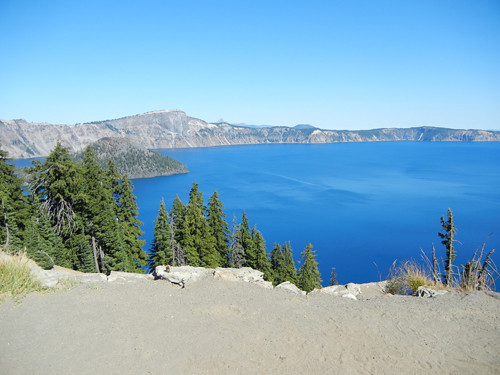
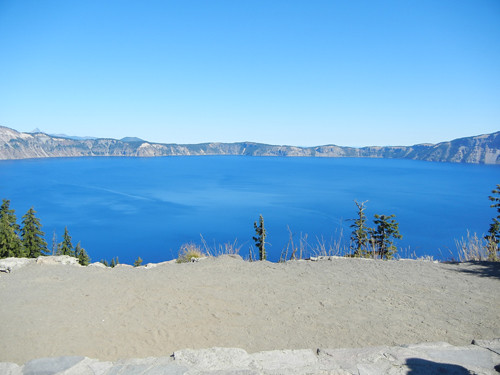
We also saw a cute chipmunk at the edge of the lake, posing for tourists.
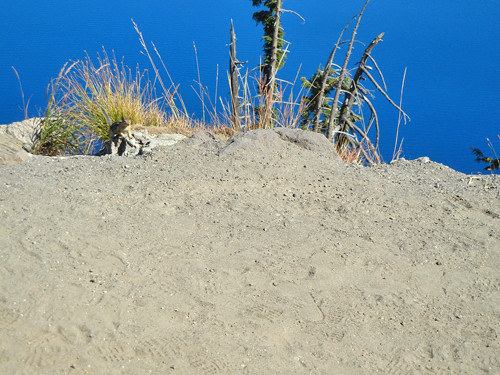
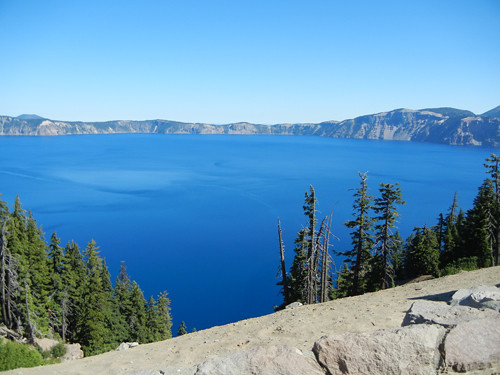
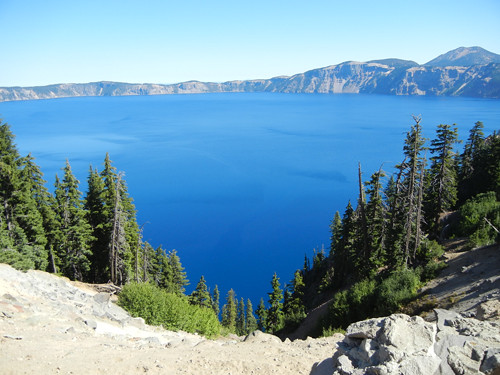
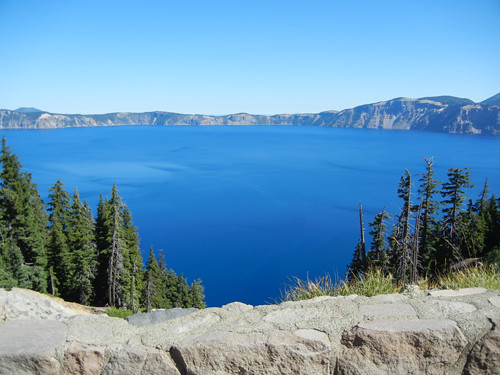
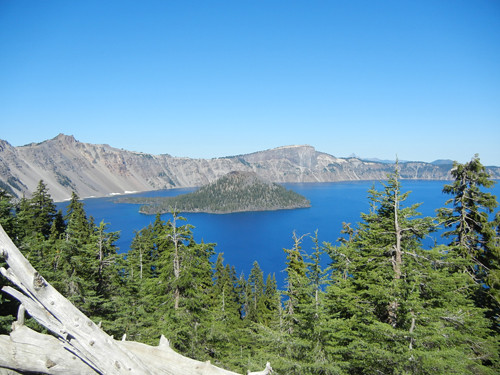

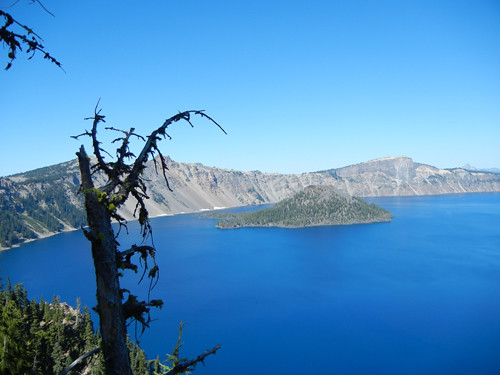
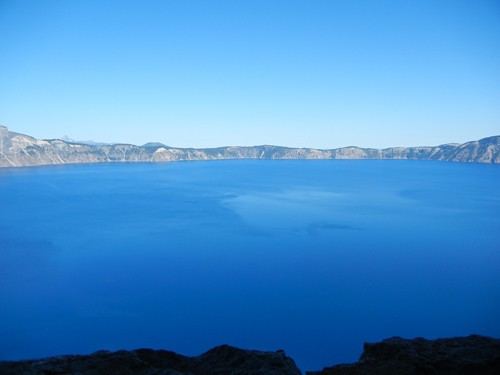
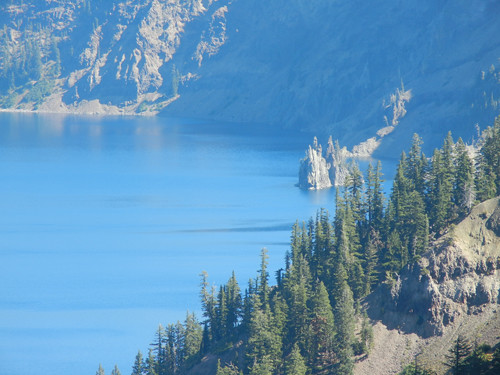
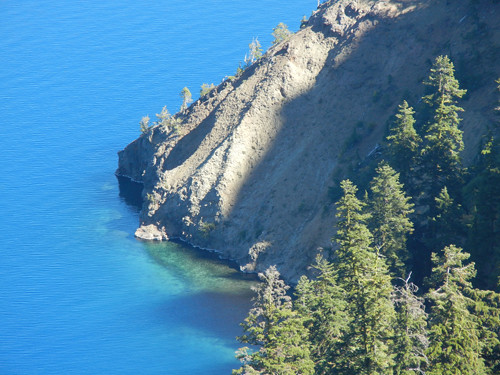
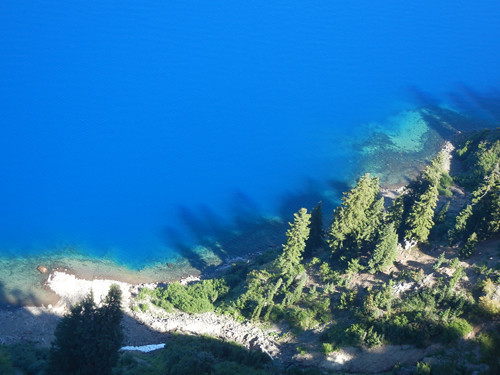
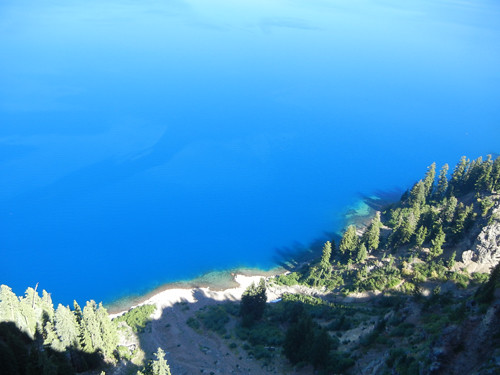
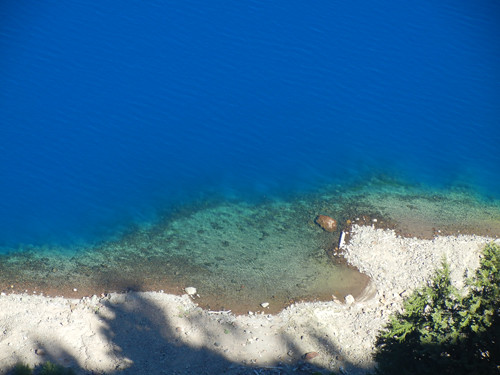
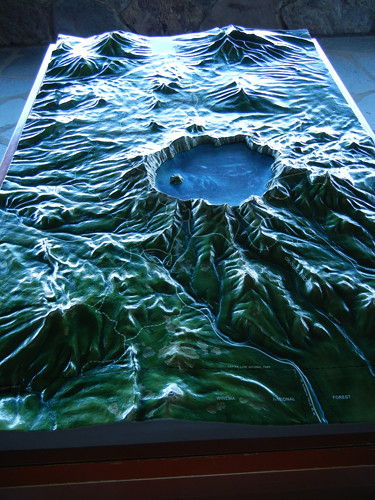
Related articles:
--> Coastal Northern California and Wine Country - Oregon Trip, Part 11 (The End)
--> Arcata, California - Oregon Trip, Part 10
--> Idyllic Parks and Cute Animals in Ashland - Oregon Trip, Part 9
--> Art in Ashland - Oregon Trip, Part 8
--> Natural Bridge and Crater Lake, Oregon - Oregon Trip, Part7--> It Got Better - Three Plays at Oregon Shakespeare Festival - Oregon Trip, Part 6
--> Ashland Springs Hotel - Oregon Trip, Part 5
--> Ashland, Oregon - Oregon Trip, Part 4
--> A Night at McCloud, California - Oregon Trip, Part 3
--> Burney Falls in McArthur-Burney Falls Memorial State Park, Shasta County, California - Oregan Trip, Part 2
--> Sundial Bridge at Turtle Bay, Redding, California - Oregon Trip, Part 1






The Rogue River was a large rapids and a lovely one. The wonderful thing to see here is the water had created courses underneath large rocks therefore the "natural bridges". We saw clearly how the water came out of and flew into "caves".





After we'd left the Natural Bridge, we continued to climb up to more than 8,000 feet elevation and arrived at the Crater Lake.



Wikipedia described the lake as:
Crater Lake is a caldera lake located in the south-central region of the U.S. state of Oregon. It is the main feature of Crater Lake National Park and famous for its deep blue color and water clarity. The lake partly fills a nearly 2,148-foot (655 m) deep caldera that was formed around 7,700 (± 150) years ago by the collapse of the volcano Mount Mazama. There are no rivers flowing into or out of the lake; the evaporation is compensated for by rain and snowfall at a rate such that the total amount of water is replaced every 250 years.It was breathtakingly beautiful, with its almost perfectly round shape, the incredible deep cobalt blue in the center and magically shimmering blue-green at the shallow water edges. The Rocks surrounded the lake was strong and tough and we even saw some snow at the bottom of the rocks.





We also saw a cute chipmunk at the edge of the lake, posing for tourists.














Related articles:
--> Coastal Northern California and Wine Country - Oregon Trip, Part 11 (The End)
--> Arcata, California - Oregon Trip, Part 10
--> Idyllic Parks and Cute Animals in Ashland - Oregon Trip, Part 9
--> Art in Ashland - Oregon Trip, Part 8
--> Natural Bridge and Crater Lake, Oregon - Oregon Trip, Part7--> It Got Better - Three Plays at Oregon Shakespeare Festival - Oregon Trip, Part 6
--> Ashland Springs Hotel - Oregon Trip, Part 5
--> Ashland, Oregon - Oregon Trip, Part 4
--> A Night at McCloud, California - Oregon Trip, Part 3
--> Burney Falls in McArthur-Burney Falls Memorial State Park, Shasta County, California - Oregan Trip, Part 2
--> Sundial Bridge at Turtle Bay, Redding, California - Oregon Trip, Part 1
Labels:
Bridge,
Crater,
Crater Lake,
Lake,
Natural Bridge,
Oregon,
River,
Underground,
Volcanic Crater,
Volcano,
Water
Tuesday, October 25, 2011
It Got Better - Three Plays at Oregon Shakespeare Festival - Oregon Trip, Part 6
The main purpose of my road trip was the Oregon Shakespeare Festival, which runs from February through October every year. The three plays we planned to see gave us chances to see performances in all the three Festival theaters - Molière's Imaginary Invalid (Le Malade imaginaire) at the proscenium Angus Bowmer Theater, Shakespeare's Henry IV Part II at Elizabethan theater, and and Julius Caesar at the arena style New Theater, respectively.
Before we approached the box office to pick up our tickets, we walked by the Festival's Main Street office, which functioned like a tourist office. There was a small scaled but wonderful costume display - those used in last season:
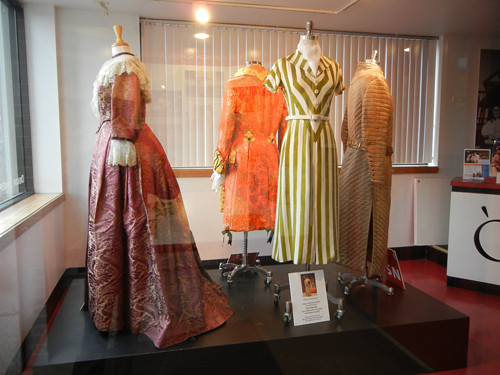
The three theaters were next to one another and in the middle of this complex, there is a sunken square, which was used for a "Green Performance" on every theater night, usually showcasing local or visiting bands and troupes. One of the nights we saw a wonderful Flamenco sangs and dances.
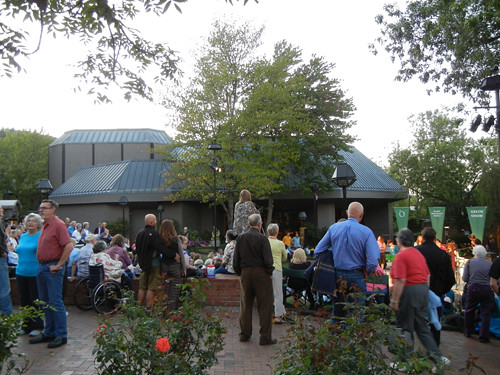
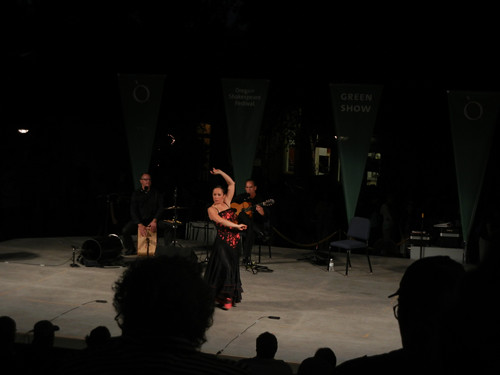
Our first play, Imaginary Invalid, was not by Shakespeare but Molière - a typical early French court farce. Unfortunately, the "adopters" and director turned it into a physical slapstick. Beyond that, they managed to inject some body function jokes, in block letters, what Molière hinted at, therefore relieving the imagination requirement from the audience, hence robbed the audience's realization process, which would be more engaging than force feeding. Worst of all, they invented some physical deformities for the sake of laughing at these deformities most cruelly. I had described this play in my previously blog extensively and my curious readers can find my vent there: Illusion versus Reality, From Bake Sale in Berkeley to Molière at Oregon Shakespeare Festival.
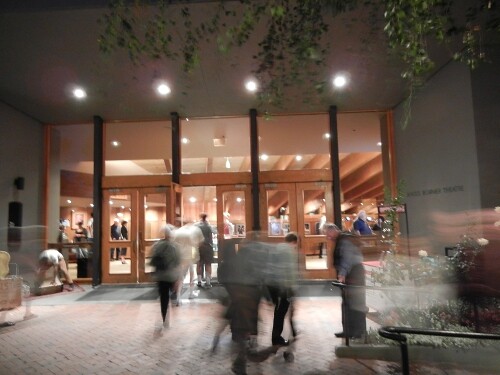
Angus Bowmer Theatre, where Molièr's Imaginary Invalid was played
Next day, we are to see Shakespeare's Henry IV, Part 2 in the Elizabethan Theater. The theater was open during the day and we entered onto the balcony, while the backstage tour participants were in the orchestra seats listening to the tour guide.
The corridor of the theater had a good view of the hills in the distance but it was the inside of the theater which provided most fascinating view, with its Tudor style half-timbered structures behind the thrust stage. In contrast to the Elizabethan Globe Theatre in London, the stage in Ashland is below the sight line, instead of higher than the center. In the Globe, the middle of the theater was for standing audience only while the one in Ashland was furnished with seats. However, that was just details. The spirit was obviously Elizabethan or "Jamesian" (since Shakespeare wrote most his plays in the period when James I was reigning England, succeeding Elizabeth I).
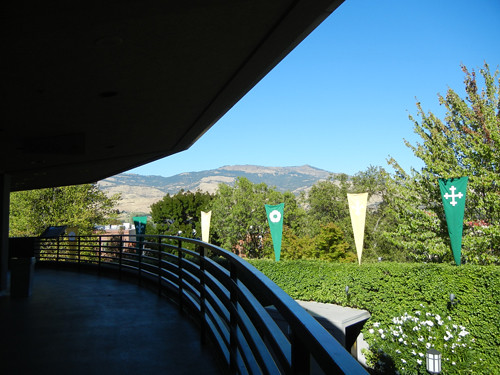
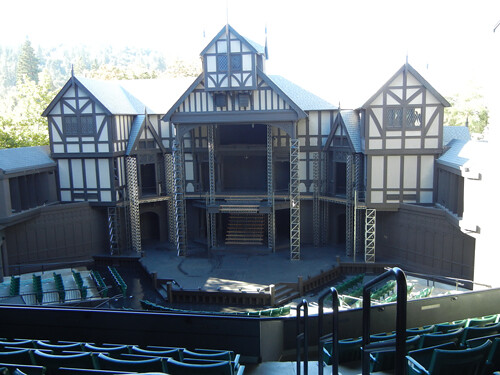
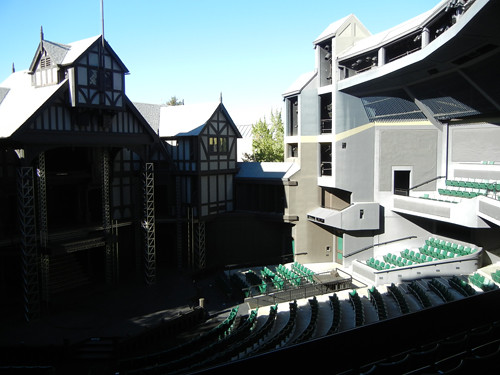
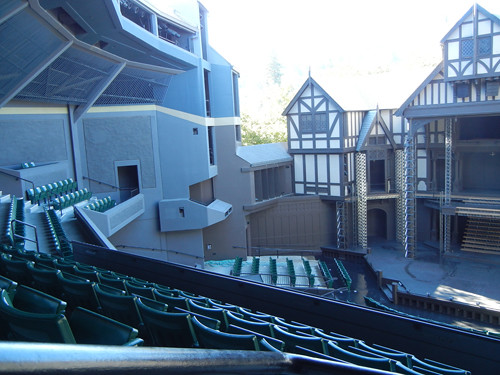
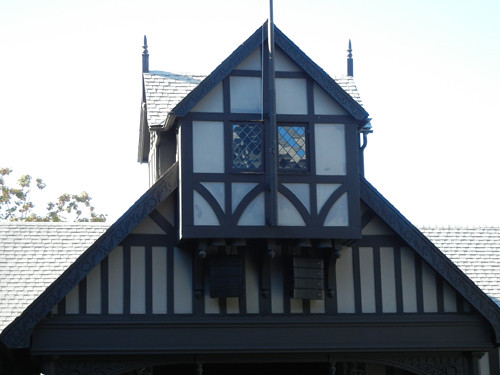
At night, the theater looked really magical, with the starry night above the opening sky. Shakespeare's famous play was a difficult one to follow and stage, despite the moving scene of the reconciliation between Henry IV and Prince Hal, and the enormously popular Sir John Falstaff. The distance of the English history and unfamiliarity of the Elizabethan vulgar expressions contributed to the issues, and that, I suspect, goaded the creative team in Ashland to ham up the rustic and sexual innuendos. But it was a necessary compromise, since we otherwise simply would fail to respond. Rougher than it should be but definitely less awful than the previous night. Prince Harry was good, so was Falstaff and the King was quite excellent.
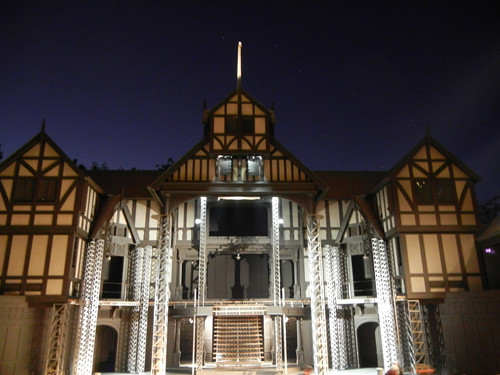
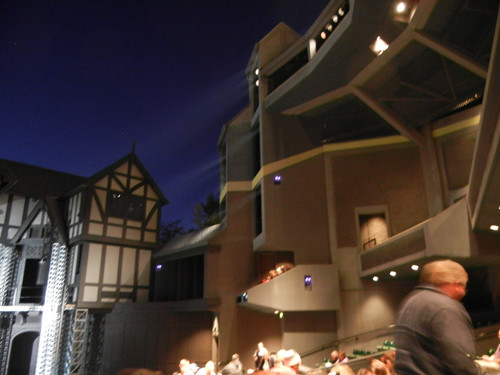
The last of our three plays was the very familiar Julius Caesar in the New Theater, a small arena style space, without the fourth wall.
Before the show, the stage was set at the entrance and the lobby, with picture posters of many assassinated political figures, and quotations for and against them on two sides of the posters.
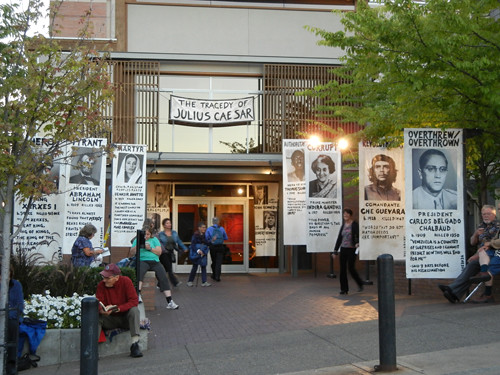
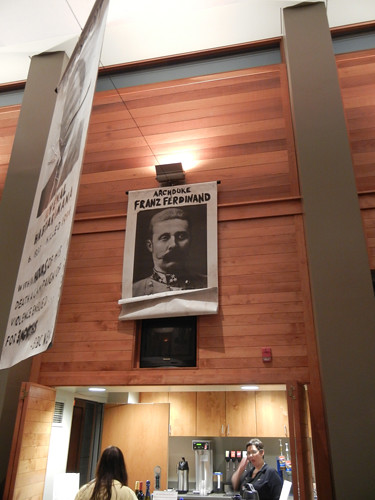
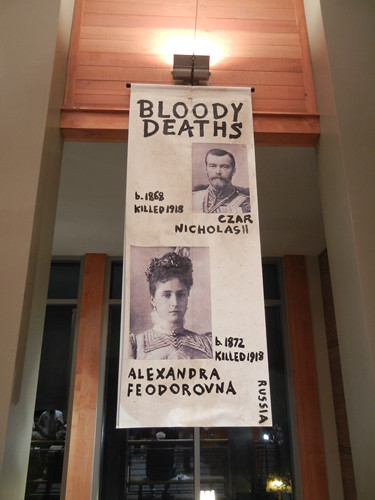
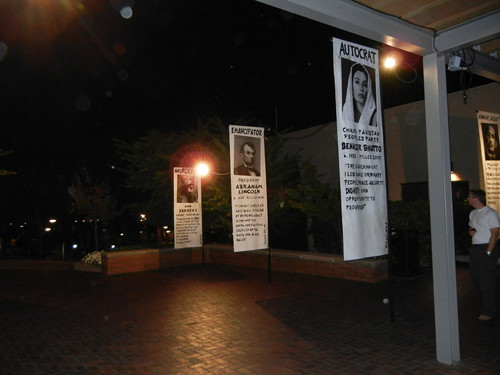
Once inside, we saw actors in modern dress roaming around in the center of the "arena" freely and chatted with audience. Then the actress Vilma Silva introduced herself as the one to play Caesar and invited the audience to cheer whenever she raised her arms in triumphant V. It was a very bloody, brutal and in-your-face production. The ghost of Caesar became omnipresent after his/her murder. It was a viscerally exciting production and had good performances from the cast.
I wondered if it was gimmicky to have a female actor play Caesar, or have the soothsayer speaking Japanese. However, the performances won me over. Considering those posters featuring assassinated from all over the world, it was apparent that the producer wanted to present this as a universal statement and summary. Granting that we have long been accustomed to have black or Asian actors playing white characters or vice versa, only a female Caesar could take us out of the preconception that we were watching that particular character, Julius Caesar. People could argue if this was necessary or not. But as presented from this particular angle, it worked exceedingly well.
After the show, we walked by a window display of the history of the Festival and its theaters:
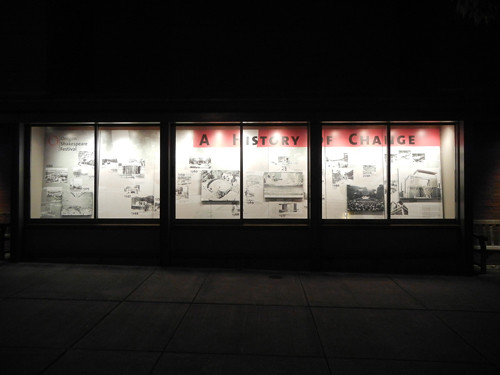
Three very different plays, three theaters, three styles. It did get better.
Related articles:
--> Coastal Northern California and Wine Country - Oregon Trip, Part 11 (The End)
--> Arcata, California - Oregon Trip, Part 10
--> Idyllic Parks and Cute Animals in Ashland - Oregon Trip, Part 9
--> Art in Ashland - Oregon Trip, Part 8
--> Natural Bridge and Crater Lake, Oregon - Oregon Trip, Part7
--> It Got Better - Three Plays at Oregon Shakespeare Festival - Oregon Trip, Part 6
--> Ashland Springs Hotel - Oregon Trip, Part 5
--> Ashland, Oregon - Oregon Trip, Part 4
--> A Night at McCloud, California - Oregon Trip, Part 3
--> Burney Falls in McArthur-Burney Falls Memorial State Park, Shasta County, California - Oregan Trip, Part 2
--> Sundial Bridge at Turtle Bay, Redding, California - Oregon Trip, Part 1
Before we approached the box office to pick up our tickets, we walked by the Festival's Main Street office, which functioned like a tourist office. There was a small scaled but wonderful costume display - those used in last season:

The three theaters were next to one another and in the middle of this complex, there is a sunken square, which was used for a "Green Performance" on every theater night, usually showcasing local or visiting bands and troupes. One of the nights we saw a wonderful Flamenco sangs and dances.


Our first play, Imaginary Invalid, was not by Shakespeare but Molière - a typical early French court farce. Unfortunately, the "adopters" and director turned it into a physical slapstick. Beyond that, they managed to inject some body function jokes, in block letters, what Molière hinted at, therefore relieving the imagination requirement from the audience, hence robbed the audience's realization process, which would be more engaging than force feeding. Worst of all, they invented some physical deformities for the sake of laughing at these deformities most cruelly. I had described this play in my previously blog extensively and my curious readers can find my vent there: Illusion versus Reality, From Bake Sale in Berkeley to Molière at Oregon Shakespeare Festival.

Angus Bowmer Theatre, where Molièr's Imaginary Invalid was played
Next day, we are to see Shakespeare's Henry IV, Part 2 in the Elizabethan Theater. The theater was open during the day and we entered onto the balcony, while the backstage tour participants were in the orchestra seats listening to the tour guide.
The corridor of the theater had a good view of the hills in the distance but it was the inside of the theater which provided most fascinating view, with its Tudor style half-timbered structures behind the thrust stage. In contrast to the Elizabethan Globe Theatre in London, the stage in Ashland is below the sight line, instead of higher than the center. In the Globe, the middle of the theater was for standing audience only while the one in Ashland was furnished with seats. However, that was just details. The spirit was obviously Elizabethan or "Jamesian" (since Shakespeare wrote most his plays in the period when James I was reigning England, succeeding Elizabeth I).





At night, the theater looked really magical, with the starry night above the opening sky. Shakespeare's famous play was a difficult one to follow and stage, despite the moving scene of the reconciliation between Henry IV and Prince Hal, and the enormously popular Sir John Falstaff. The distance of the English history and unfamiliarity of the Elizabethan vulgar expressions contributed to the issues, and that, I suspect, goaded the creative team in Ashland to ham up the rustic and sexual innuendos. But it was a necessary compromise, since we otherwise simply would fail to respond. Rougher than it should be but definitely less awful than the previous night. Prince Harry was good, so was Falstaff and the King was quite excellent.


The last of our three plays was the very familiar Julius Caesar in the New Theater, a small arena style space, without the fourth wall.
Before the show, the stage was set at the entrance and the lobby, with picture posters of many assassinated political figures, and quotations for and against them on two sides of the posters.




Once inside, we saw actors in modern dress roaming around in the center of the "arena" freely and chatted with audience. Then the actress Vilma Silva introduced herself as the one to play Caesar and invited the audience to cheer whenever she raised her arms in triumphant V. It was a very bloody, brutal and in-your-face production. The ghost of Caesar became omnipresent after his/her murder. It was a viscerally exciting production and had good performances from the cast.
I wondered if it was gimmicky to have a female actor play Caesar, or have the soothsayer speaking Japanese. However, the performances won me over. Considering those posters featuring assassinated from all over the world, it was apparent that the producer wanted to present this as a universal statement and summary. Granting that we have long been accustomed to have black or Asian actors playing white characters or vice versa, only a female Caesar could take us out of the preconception that we were watching that particular character, Julius Caesar. People could argue if this was necessary or not. But as presented from this particular angle, it worked exceedingly well.
After the show, we walked by a window display of the history of the Festival and its theaters:

Three very different plays, three theaters, three styles. It did get better.
Related articles:
--> Coastal Northern California and Wine Country - Oregon Trip, Part 11 (The End)
--> Arcata, California - Oregon Trip, Part 10
--> Idyllic Parks and Cute Animals in Ashland - Oregon Trip, Part 9
--> Art in Ashland - Oregon Trip, Part 8
--> Natural Bridge and Crater Lake, Oregon - Oregon Trip, Part7
--> It Got Better - Three Plays at Oregon Shakespeare Festival - Oregon Trip, Part 6
--> Ashland Springs Hotel - Oregon Trip, Part 5
--> Ashland, Oregon - Oregon Trip, Part 4
--> A Night at McCloud, California - Oregon Trip, Part 3
--> Burney Falls in McArthur-Burney Falls Memorial State Park, Shasta County, California - Oregan Trip, Part 2
--> Sundial Bridge at Turtle Bay, Redding, California - Oregon Trip, Part 1
Labels:
Ashland,
Falstaff,
Henry IV,
Julius Caesar,
Moliere,
Oregon,
Oregon Shakespeare Festival,
Shakespeare
Subscribe to:
Comments (Atom)




